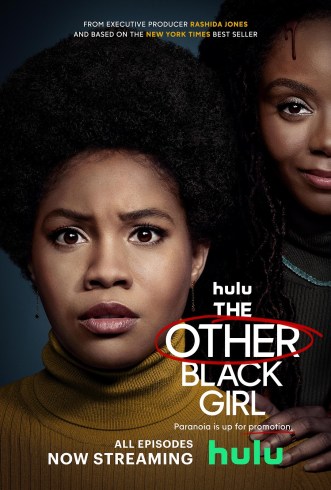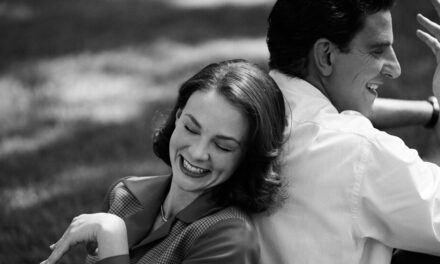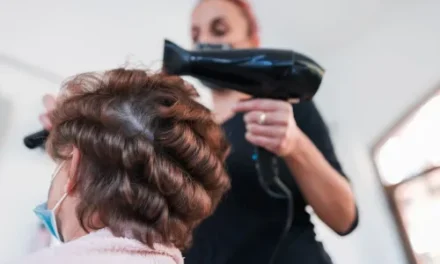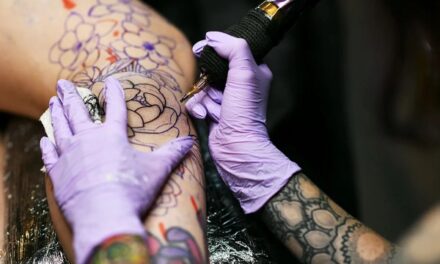By Jocelyn Jackson Williams | OBSERVER Columnist

Have you watched The Other Black Girl? If not, I think you should and tell me what you think. I loved it for many reasons but the one I’ll mention for now is how if she is not careful, a Black woman will commingle her sense of value with her natural hair and come to a negative conclusion.
I was three months into my marriage when my husband asked me, “Aren’t you going to wear a bonnet at night like Black women do?” That was the moment I realized I created a rule for my marriage (never wrap your head up at night because Black men don’t like it) and never bothered to verify that thought with the Black man I actually married.
I quickly responded, “I am now.” I walked straight to the closet, grabbed my bonnet and put it on my head. I realized I had internalized a few negative comments I had heard throughout my life that Black women look like Aunt Jemima. In trying to disassociate myself from a stereotype, I simultaneously was engaging in anti-Blackness by making a decision based in shame.
What bothers me is that we don’t talk about these things. The Aunt Jemima comments weren’t the only thing that led me to go into hiding. There were other comments as well, all of them speaking to the denigration of the Black woman’s value through the context of her hair. I see now that I started to view and defend myself in relation to a collective opinion that a Black woman’s hair is problematic and undesirable. I see that I have been wrestling with other’s opinions and my own for quite some time. In writing this article, I just remembered that when I met Kwame Ture, the only question I asked him was what he thought about my hair. This river runs deep, yet we rarely discuss it. For all intents and purposes, we need to unveil and, if necessary, heal.
In my dreams, Black women have access to a collective therapy session where we explore the beauty and safety that exists in truth and vulnerability about how we feel about our own hair. There’s definitely an abundance of issues, thoughts, and beliefs to uncover. We’re all proud, for instance, that the Crown Act exists, but do we take the necessary moments to process why on God’s green earth do we need laws enacted to protect the sanctity of our hair? And why do many of us Black women internalize this form of anti-Blackness instead of rejecting it?
The answer lies in who we allow to determine our worth. We find our north star in an Audre Lorde quote: “If I didn’t define myself for myself, I would be crunched into other people’s fantasies for me and eaten alive.”
I loved The Other Black Girl for its exploration of this very quote. When the main character, Nella, walks into the office, the soundtrack playing for her says:
If I wear it straight, will they like me more?
Like those girls on front covers
Long hair make ‘em stay little longer
Stay hair, stay straight though we feel ashamed
By the curls, waves and natural things
Am I good enough? Am I good enough?
About time I embrace myself and soul (Selfish Soul by Sudan Chronicles)
I can only speak for myself but the most profound way I have defined myself for myself has been through wearing my hair natural. It’s an experiential truth hence, I am not proclaiming what all Black women need to do with their hair. But I am suggesting that if you recognize within yourself, Black woman, a belief that you are not enough as you are or you’re too much as you are, that you may have accidentally swallowed the anti-Blackness pill and you can now begin the process of getting it out of your system. How one chooses to do that is each person’s personal journey.
If you are reading this and, by chance, you have been curious yet scared to go natural, allow me to (squealing with excitement on the inside but calmly mention) highlight a few people who can assist you along your journey. There are three YouTube channels that I follow for natural hair content: Naptural85, Curly Proverbz, and GreenBeauty. These three women were my Masterclass in how to properly care for my hair.
Once you go down this YouTube path, you will see a plethora of natural hair content. Everyone speaks with confidence even if what they’re saying is nonsense. For that reason, I tend to stick to the three tried and true accounts to avoid the people who make content as a purpose in and of itself as opposed to uplifting the culture. Whatever you choose to do to consciously love yourself more, please know that I am celebrating on your behalf. I believe the tide is turning.
The other night, my two-year old son grabbed my bonnet and handed it to me when I said it was bedtime. I felt that deeply.
Jocelyn Jackson Williams is a published author and one of only ten Certification Trainers in the country, and the only person of color, of the Grief Recovery Method. She is passionate about issues surrounding love, life, and loss in the Black community. You can connect with her on Instagram, TikTok and Threads: @jocelyn_takes_on




